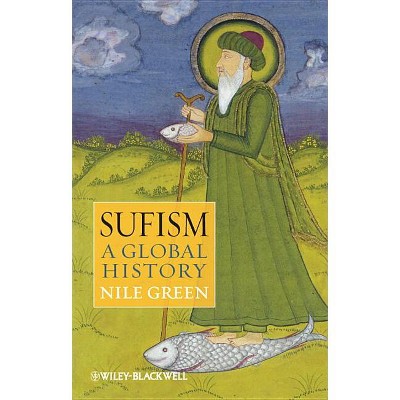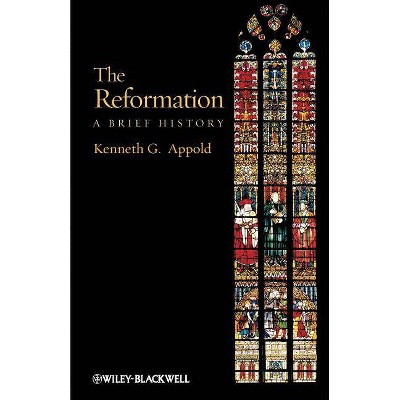A New History of Shinto - (Wiley Blackwell Brief Histories of Religion) by John Breen & Mark Teeuwen (Paperback)

About this item
Highlights
- This accessible guide to the development of Japan's indigenous religion from ancient times to the present day offers an illuminating introduction to the myths, sites and rituals of kami worship, and their role in Shinto's enduring religious identity.
- About the Author: John Breen is Reader in Japanese at SOAS (University of London) and Associate Professor at the International Research Centre for Japanese Studies in Kyoto, where he edits the journal Japan Review.
- 288 Pages
- Religion + Beliefs, Shintoism
- Series Name: Wiley Blackwell Brief Histories of Religion
Description
Book Synopsis
This accessible guide to the development of Japan's indigenous religion from ancient times to the present day offers an illuminating introduction to the myths, sites and rituals of kami worship, and their role in Shinto's enduring religious identity.- Offers a unique new approach to Shinto history that combines critical analysis with original research
- Examines key evolutionary moments in the long history of Shinto, including the Meiji Revolution of 1868, and provides the first critical history in English or Japanese of the Hie shrine, one of the most important in all Japan
- Traces the development of various shrines, myths, and rituals through history as uniquely diverse phenomena, exploring how and when they merged into the modern notion of Shinto that exists in Japan today
- Challenges the historic stereotype of Shinto as the unchanging, all-defining core of Japanese culture
From the Back Cover
A New History of Shinto is an accessible guide to the development of Japan's indigenous religion from ancient times to the present day.The authors explore the various shrines, myths, and rituals of pre-Shinto worship, examining the processes by which they were then interpreted as Shinto and merged into the notion of Shinto that exists in Japan today. Key moments in Shinto's long evolutionary process are identified and discussed, including the Meiji Revolution of 1868 and other crucial junctures in Japan's medieval and early modern periods. Drawing on original research, this enlightening book encapsulates Shinto's long history and continuing influence.
Review Quotes
"It is a measure of the book's achievement that it has managed to introduce such scholarly notions in a way that is at once accessible and instructive. Even those skeptical about its claims would have to admit the solidity of the research, and the book renders valuable service by opening up debate about Shinto's origins to a general readership. Its influence is likely to be long lasting." (Japan Review, 2012)
"Breen and Teeuwen offer a postmodern, historical exposition of Shinto. In addition to independent research, they draw on a wide field of contemporary Japanese Shinto studies . . . The book is thus not only a result of solid academic work-it is also an ambitious political assessment." (Japanese Journal of Religious Studies, 2010)
"But for anyone interested in Shinto studies, religion and nationalism, and the contested and ever-changing nature of religious traditions, this is an essential read." (Religious Studies Review, 1 March 2011)
"Written by two scholars at the forefront of the study of Japanese religions, this book offers much more than a 'brief history'. It is in fact a very bold and lucid attempt to redraw the parameters that govern our understanding of that elusive body of thought and practice we call Shinto ... This book will surprise and on occasion shock; it will surely be required reading for all those interested in Japan and the Japanese."
--Richard Bowring, Professor of Japanese Studies, University of Cambridge
About the Author
John Breen is Reader in Japanese at SOAS (University of London) and Associate Professor at the International Research Centre for Japanese Studies in Kyoto, where he edits the journal Japan Review. His publications include Yasukuni, the War Dead and the Struggle for Japan's Past (edited, 2008), Inoue Nobutaka, Shintō A Short History (translated and adapted with Mark Teeuwen, 2002), Shintō in History: Ways of the Kami (edited with Mark Teeuwen, 2000), and Japan and Christianity: Impacts and Responses, (edited with Mark Williams, 1996).Mark Teeuwen is Professor of Japanese Studies at the University of Oslo. As well as the books authored and edited with John Breen, he is co-editor of Buddhas and Kami in Japan: Honji Suijaku as a Combinatory Paradigm (with Fabio Rambelli, 2003) and The Culture of Secrecy in Japanese Religion (with Bernhard Scheid, 2006).











